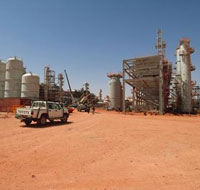18 Jan 2013 - {{hitsCtrl.values.hits}}
 At least 22 foreign hostages remained unaccounted for on Friday after Algerian forces stormed a desert gas complex to free hundreds of captives taken by Islamist gunmen.
At least 22 foreign hostages remained unaccounted for on Friday after Algerian forces stormed a desert gas complex to free hundreds of captives taken by Islamist gunmen.
14 Nov 2024 1 hours ago
14 Nov 2024 2 hours ago
14 Nov 2024 2 hours ago
14 Nov 2024 3 hours ago
14 Nov 2024 3 hours ago